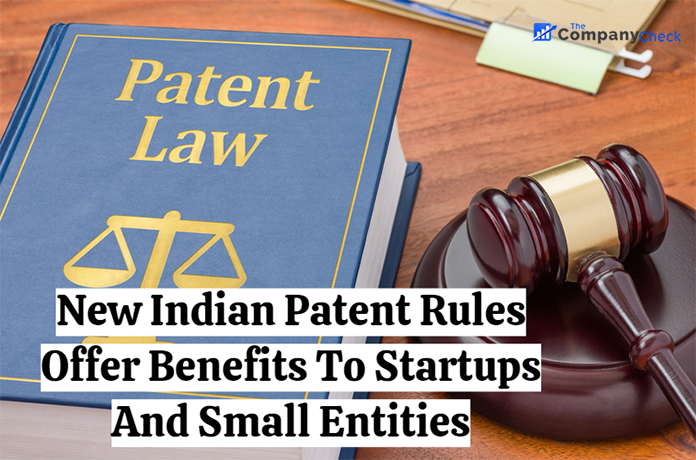India’s most recent series of revisions to its Patent Rules are probably going to colossally benefit startups and small entities looking for patent insurance for their inventions. With these corrections, in overall filing and prosecution fees for startups and small entities have been fundamentally decreased. While the fees applicable for small entities have been reduced altogether, startups can hold their “startup” status for as long as ten years, along these lines permitting them the advantage of favorable fees, and so forth for an all-encompassing period based on what was before available.
These changes are in accordance with different initiatives taken by the government to promote entrepreneurship, and specifically, startups in India. Recently, the Scheme for Facilitating Startups Intellectual Property Protection (SIPP) that was at first launched as a pilot project to help startups in developing and protecting their intellectual property has been extended for a further period of three years from April 01, 2020 to March 31, 2023.
The first set of revisions – the Patents (Amendment) Rules, 2020, notified on October 19, 2020 – improve the technique relating to the submission of priority applications and their translations, just as the filing of working statements (Form 27). These amendments will reduce both compliance and prosecution costs for applicants. The second set of amendments – the Patents (Second Amendment) Rules, (“2020 Second Rules”), notified on November 04, 2020 – further reduce the filing and prosecution costs for candidates that are startups and small entities. These revisions will in total make intellectual property protection affordable as well as open to different classes of business, and will probably additionally help patent filings.
Fees For Small Entities
The Patent Rules, 2003 recently permitted a 50% decrease in the charges payable by a small entity, compared to that payable by different other entities. The amendments decrease this further: presently, the charge payable by a small entity is down to 20% of that payable by different entities. This makes the fee payable by a small entity at standard with that payable by a natural person and a startup.
Change in the Status of Startup
The Patent Rules, 2003 recently stated that an entity would no longer be able to guarantee the status of a startup after a duration of “five years” from the date of incorporation or registration. The changes substitute this time of five years with a “period during which it is perceived by the competent authority”. As of now, an entity ceases to be perceived as a startup by the Department for Promotion of Industry and Internal Trade (DPIIT) on the completion of ten years from the date of its incorporation/registration or if its turnover for any earlier year surpasses 100 crore rupees.
Certain Benefits to Prevail Even if the Status of Startups/ Small Entity Ceases
In a significant procedural explanation, the 2020 Second Rules explain that regardless of whether the candidate’s status of startup/small entity stops after filing a solicitation for facilitated assessment, the solicitation made for the expedited examination will not be questioned.
For more information, visit the website of The Companycheck







